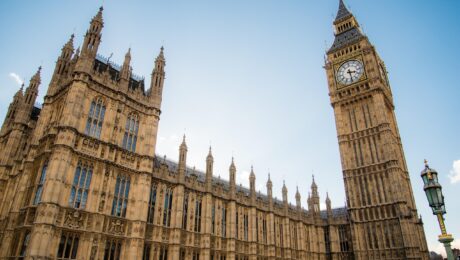A director has lost a First Tier Tribunal (FTT) appeal over a VAT default penalty issued by HMRC for £20,000 for a payment that was only four days late
The appellant, Yiannakis Georgiou Polycarpou, appealed against a VAT default surcharge issued by HMRC for £20,165 issued to his company, Polyteck Building Services Ltd.
The due date for the VAT return and payment for the period 03/21 was 7 May 2021. Polycarpou paid VAT between 7 May 2021 and 11 May 2021, by full payment submission (FPS).
However, he later became liable to a penalty at 10% of the outstanding VAT due, as the payment was late.
The total outstanding VAT was £526,656.15 and the penalty charged was £52,665.61. HMRC conducted a review and found that £325,000 had been paid before the due date, so the surcharge was reduced to £20,165.61.
On 5 April 2022, Polycarpou took his dispute to the tax tribunal.
HMRC argued that by failing to pay VAT by the due date, Polycarpou failed to comply with the Value Added Tax Act (VATA) and the Value Added Tax Regulations 1995.
However, the appellant contended that a VAT notice of assessment and a surcharge liability notice of extension (SLNE) were not received about the 03/21 period. HMRC stated that their systems ‘demonstrate’ that the necessary documents were posted to him.
Polycarpou also argued that he had already been in discussions with HMRC debt management at the time that the VAT return and payment were due to request a time-to-pay (TTP) arrangement.
He added that his business, which provided building services, had suffered due to the pandemic and that it had affected cash flow. The payment of additional penalties for a minor default of four days had exacerbated the problem.
The time-to-pay arrangement was requested on 6 May 2021, according to HMRC, and was refused on 10 May 2021, as the appellant already had an arrangement in place for another period.
HMRC argued that the appellant’s ‘cash flow difficulties’ were neither new nor sudden, existing before the pandemic. Due diligence required Polycarpou to secure sufficient funds from different sources. It submitted that insufficient funds did not constitute a reasonable excuse.
As a director, Polycarpou’s duties included looking after staff, key clients and large accounts. He added that everything concerning the business’ finances came through him. In respect of cash flow, he added that he did his ‘utmost best’, but that the VAT payments were due at the same time as wages.
He then proceeded to say that he had suffered a heart attack during the period in question and that his turnover had halved during the pandemic.
On top of this, despite having numerous clients, Brent Council had delayed making payment of an invoice. The income should have come in on the Friday before the default and, at one point, the Council owed him £1,000,000.
About the notice from HMRC for the period 03/21, he told the tribunal that he ‘opens all of the post’ and hands it over to his accountant, who dealt with it on his instructions.
Section 59(4) VATA provides that if a person defaults in respect of a period ending within a surcharge liability period and has outstanding VAT for the period, he becomes liable to a surcharge.
The FTT was satisfied that the appellant was in default of an obligation imposed by statute. When looking at whether Polycarpou had a reasonable excuse for the default, the tribunal stated that a ‘prudent and reasonable taxpayer exercising reasonable foresight and due diligence’ would have proper regard for their responsibilities when paying tax.
Judge Natsai Manyara said: ‘This is because the appellant failed to pay the VAT due by the statutory deadline. By failing to pay VAT, he failed to comply with the legislation. Subject to considerations of ‘reasonable excuse’, the surcharge imposed is due and has been calculated correctly.
‘Whilst we accept that the appellant’s turnover may have halved to what it was in 2020, Polycarpou’s evidence was that payment was being expected from a customer. We find that a client not paying an invoice immediately is a normal business circumstance.
‘We find that the underlying problem was cash flow. There is considerable force in HMRC’s submissions that these problems were neither sudden nor new. As to the cash flow problem, we are satisfied that the problems encountered by businesses are nothing more than the normal hazards and difficulties encountered by most traders. Problems such as slow payment from clients cannot provide shelter when such a situation occurs with reasonable regularity.
‘Whilst the coronavirus pandemic was an unforeseeable (or inescapable) event for all, we are satisfied that measures were put in place to assist taxpayers. While having every sympathy for the personal losses and illness suffered by Mr Polycarpou, it is the case that the appellant had never put forward illness or bereavement as a reason for the default in this appeal.’
For the reasons above, the tribunal was satisfied that the appellant had not established a reasonable excuse. The appeal was dismissed.
Parents and unpaid carers are due to receive new employment rights which will grant them extra protection from redundancy while on parental or carer leave
Once in force, the Bill will ban companies from making women redundant from the moment they disclose their pregnancy until their child is 18 months old.
Under the Protection from Redundancy Act, pregnant women and new parents will be given an extension of existing redundancy protections, to help cover pregnancy and a period of time after parents return to work.
Currently, parents are only protected from redundancy while on maternity leave, adoption leave or shared parental leave.
The Neonatal Care Act gives parents whose newborn baby is admitted to neonatal care up to 12 weeks’ paid leave, in addition to other leave entitlements such as maternity and paternity leave.
The length of leave will be based on how long their baby receives neonatal care and will apply if their baby receives neonatal care for more than seven continuous days before they reach 28 days old.
The Carers’ Leave Act will give working carers up to five days of unpaid carers leave per year.
The Act will ensure that the estimated two million employees currently juggling paid employment and caring responsibilities will be protected.
The legislation has been backed by trade unions including Unison and the TUC, alongside organisations such as the CBI.
Christina McAnea, general secretary of Unison, said: ‘What new parents often need most is job security, but pregnant women and new parents are too often first in line for redundancy. This new law adds greater workplace protections to the statute book.’
Following an inquiry in November 2017, the Work and Pensions Select Committee found that employment support for carers was limited, and that carers had to choose between taking a sick day or using a day’s annual leave.
Helen Walker, chief executive of Carers UK, said: ‘This is a historic moment for unpaid carers and Carers UK’s decades-long campaign to improve working carers’ rights – we know many of them will be delighted by this new law.
‘This legislation sets us up for the future and we hope it will see employers give greater consideration to the needs of carers in their workforces.’
The government will need to introduce secondary legislation to implement these new entitlements on a date which is yet to be announced, with changes at the earliest being in 2024.
Business minister Kevin Hollinrake said: ‘We know how stressful it can be for parents caring for a new-born in neonatal care, or someone who is trying to juggle work with caring responsibilities, and these additional protections will ensure they get the support they need.’
Tax credit claimants need to be on their guard against fraudsters, as HMRC warns of increasing use of text messages by scammers
According to the National Cyber Security Centre, HMRC was the third most spoofed government body in 2022, behind the NHS and TV Licensing.
HMRC has issued an alert providing details of a number of new scams that aim to trick people into handing over money or personal information, including claims that a taxpayer’s National Insurance number has been used in a fraud.
In the year to April 2023 HMRC responded to 170,234 referrals of suspicious contact from the public. Of these, 68,437 were related to bogus tax rebates.
HMRC worked with the telecoms industry and Ofcom to remove 212 phone numbers being used to commit HMRC-related phone scams in the last year and responded to 58,186 reports of phone scams in total.
The number of scams has gone up dramatically in the last three years from only 425 phone scams in April 2020.
The scale of the problem was highlighted by the tens of thousands of fake web pages containing malicious information about HMRC and ways to claim tax credits. In a single year, 26,922 malicious web pages were reported to HMRC for takedown.
Criminals use deadlines – like the tax credits renewal deadline on 31 July – to target their victims and the department is warning around 1.5 million tax credits claimants to be alert to scams that mimic government communications to make them appear genuine.
Scam messages can be convincing, and individuals may be pressured into make rushed decisions. HMRC will never ring anyone out of the blue making threats or asking them to transfer money.
Typical scam examples include:
- emails or texts claiming an individual’s details are not up to date and that they risk losing out on payments that are due to them;
- emails or texts claiming that a direct debit payment has not ‘gone through’;
- phone calls threatening arrest if people do not immediately pay fake tax owed;
- claims that the victim’s National Insurance number has been used in fraud; and
- emails or texts offering spurious tax rebates or bogus grants or support.
Myrtle Lloyd, HMRC’s director general for customer services, said: ‘Tax scams come in many forms and we’re urging customers to be alert to the tactics used by fraudsters and never to let yourselves be rushed.
‘If someone contacts you saying they’re from HMRC and asks you to give personal information or urgently transfer money, be on your guard. Search ‘HMRC scams’ advice on gov.uk to find out how to report scams and help us fight these crimes.’
HMRC is also urging tax credits customers to be alert to misleading websites or adverts asking them to pay for government services which are free, often by charging for a connection to HMRC helplines.
HMRC is currently sending out tax credits renewal packs to customers and is reminding anyone who has not received theirs to wait until after 15 June before contacting HMRC.
Taxpayers can renew their tax credits for free via gov.uk or the HMRC app.
HMRC has a video on YouTube explaining how tax credits claimants can use the HMRC app to view, manage and update their details.
By the end of 2024, tax credits will be replaced by Universal Credit. Customers who receive tax credits will receive a letter from the Department for Work and Pensions (DWP) telling them when to claim Universal Credit. It is important that people claim by the deadline shown in the letter to continue receiving financial support as their tax credits will end even if they decide not to claim Universal Credit.
HMRC is also warning people not to share their HMRC login details with anyone else. Someone using these could steal from the account owner or make a fraudulent claim in their name and leave the individuals having to pay back the full value of any fraudulent repayment claim made on their behalf.
HMRC advice
Protect
- criminals are cunning – protect your information.
- take a moment to think before parting with your money or information.
- use strong and different passwords on all your accounts so criminals are less able to target you.
Recognise
- do not trust caller ID on phones. Numbers can be spoofed.
Report
- if you’re unsure about a text claiming to be from HMRC forward it to 60599, or an email to phishing@hmrc.gov.uk. Report a tax scam phone call on gov.uk.
- contact your bank immediately if you’ve had money stolen, and report it to Action Fraud. In Scotland, contact the police on 101.
More than 1.4 million taxpayers had to pay interest for late payments in the 2020-21 tax year after missing filing deadlines
There was a 15% increase in the number of people charged interest on overdue tax payments in 2020-21, compared to the pre-pandemic figure of 1.2m, showed a freedom of information (FOI) request by investment platform AJ Bell.
The FOI did not reveal how much money HMRC was raised from taxpayers who failed to pay their tax bills on time.
The increase came despite furlough and corporate dividend cuts meaning many would have owed HMRC less than normal for that year.
Around 270,000 people were hit with a penalty for missing the self assessment tax return deadline in 2020-21, down from 290,000 the year before. A further 110,000 had to pay a late filing penalty as well as interest charges.
In total, the tax authority raked in around £27m in overdue self-assessment tax payments, which sees an initial £100 penalty for those who fail to process their returns on time.
By the 2024-25 tax year, the number of people HMRC estimate to be paying dividend and capital gains tax (CGT) will increase by 2m, according to AJ Bell.
It indicates that hundreds of thousands more taxpayers could find themselves facing penalties for late tax payments if a similar proportion misses the deadlines.
The scale of these penalties as a result of missing the tax return deadline highlighted the large number of taxpayers struggling with the UK’s complex tax system, with the issue set to be exacerbated by frozen tax thresholds and cuts of dividend and CGT allowances.
Those who fail to process their self assessment tax returns by the deadline of 31 January each year face an initial £100 penalty from HMRC. If the return is filed more than three months late, a daily £10 penalty is charged.
However, the current standard £100 fine is due to be changed to a points-based system in 2026.
HMRC has confirmed that the penalty system will be reformed in a bid to curb abuse of the self-assessment system and support taxpayers who make occasional mistakes.
The planned penalty reforms for paying tax late will be based on the length of time the tax is outstanding but will only affect the 5% of non-compliant taxpayers. The earlier an overdue tax payment is made, the lower the penalty charge will be.
Laura Suter, head of personal finance at AJ Bell, said: ‘These figures lay bare just how hard the British public find completing their tax return and paying their tax bill.
‘As the government drags more people into paying tax via self assessment, we’ll see more and more taxpayers hit by these penalties. With the tax-free allowance on capital gains and dividend taxes being dramatically cut in the next year, more people will have to file a tax return for the first time.
‘On top of that, those who earn more than £100,000 must file a return, as well as those who have hit the child benefit high income charge and people who have other sources of income from their main job. Some people are going to struggle to complete the return, or not even realise they have to file one in the first place.’
Suter recommends that one way to avoid late filing is to set regular calendar reminders to prompt you to file on time.
‘Another alternative is to outsource it to a professional. It’s very possible to file a return yourself, especially if it’s just to report an investment gain, for example, but you might decide that delegating it to an accountant or tax specialist is worth the cost.’




